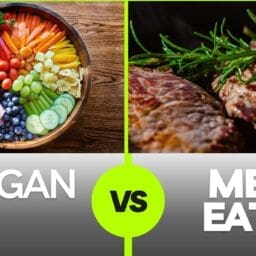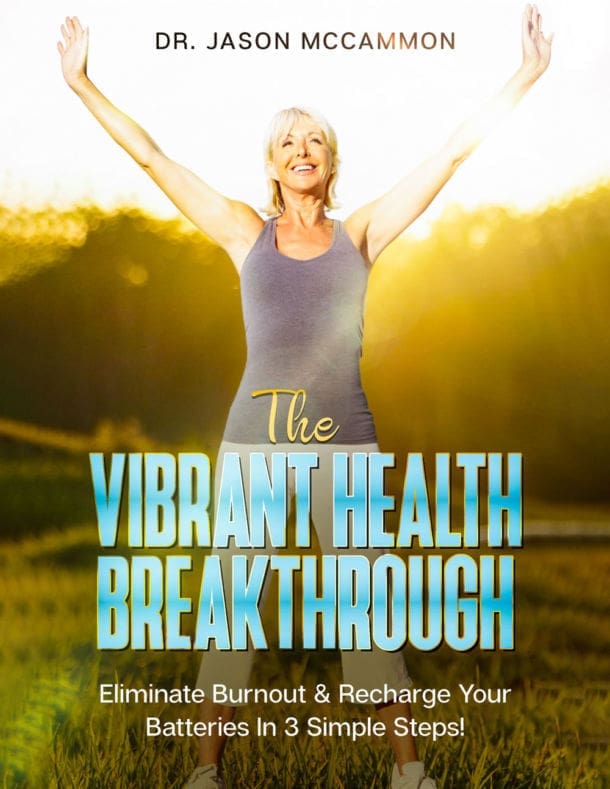
The Modern Diet Dilemma: Why Supplementation is Essential
Hey, what’s going on out there? This is Dr. Jason McCammon, PhD in Natural Medicine. Today, we’re diving into an essential topic: supplementation. I’ll focus on what I believe forms the foundation of health.
Today’s Nutritional Landscape
To provide some context, most of our foods today are grown in environments that resemble sand. There’s minimal nutrition and very few minerals. The soil, which should be teeming with good bacteria and a rich ecosystem, has been depleted due to over-farming, commercial farming, and the use of chemicals. A piece of broccoli today is not the same as it was 100 years ago. Studies have shown that it’s three to five times less nutrient-dense. Even more concerning is the significant drop in antioxidants, which are more crucial than just regular nutrients or minerals. Antioxidants protect our bodies from free radical damage, which can cause aging. Without sufficient antioxidants, we’re at a higher risk for inflammation and even cancer.
The Deceptive Nature of “Whole Foods”
How can I be so sure of this? Not only does the literature support my claims, but in my over 20 years of practice as a healthcare provider, I’ve seen individuals who maintain a clean diet still suffer from significant health issues. If they’re consuming all the recommended fruits and vegetables, why aren’t they healing? There are various reasons, including psychological factors and pathogens. However, a significant factor is that while they’re eating whole foods, those foods are nutritionally empty. Now, is whole food like steamed broccoli better than an unhealthy sandwich in terms of nutrients? In most cases, yes. But the point is, you’ll need to supplement. And I’ll emphasize this: without supplementation, you will be deficient. This is especially true for those who are more active or have high energy levels.
Fact number one: our food sources are depleted of nutrients and antioxidant power due to commercial farming. But let’s move on to the main point: how can we cover most of our nutritional bases with the fewest products? Generally, three supplements can cater to most people’s needs.
The Three Pillars of Supplementation
- Multivitamin: It’s crucial to choose a quality multivitamin. Many generic brands use calcium carbonate as a binder, which is hard for most people to digest. I’ve heard stories of undigested multivitamins being found in waste tanks. Moreover, these multivitamins often contain synthetic nutrients that aren’t bioavailable. My advice? Opt for a whole food-based multivitamin with methylated folate and methylated B-12. Also, consider one with iodine or iron. The higher the quality of the multivitamin, the more tablets you might need to take daily due to the space the nutrients occupy.
- Vitamin D: Many physicians don’t recommend enough vitamin D. While 2,000 IU might prevent early childhood diseases, most adults need at least 5,000 IU, with some requiring up to 10,000 IU. It’s essential to get blood tests to determine the right amount. The vitamin D in multivitamins is usually insufficient.
- Omega-3 Fatty Acids (Fish Oil): This is a powerhouse supplement. While you can get omega-3s from whole foods like grass-fed beef and wild-caught salmon, supplementation might be necessary for those who don’t consume these foods regularly. For vegetarians, while flaxseed offers omega-3 in the ALA form, it’s not as efficient as the DHA and EPA forms found in animal sources. When choosing fish oil, opt for a triglyceride or liposomal-based product, as the ethyl ester form is poorly absorbed and can cause liver irritation.
In conclusion, to address the deficiencies in our modern diet, consider a whole food-based multivitamin, vitamin D supplement, and omega-3 fatty acid. Stay tuned for more insights!
















